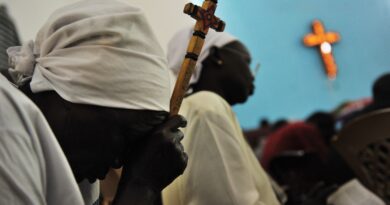Nigerians Reflect on August 20: Culture and Global Links
LAGOS, Nigeria – August 20, 2025 – As Nigeria joins the world in marking events tied to August 20, public opinion across the country has revealed a mix of pride, cultural reflection, and global awareness.
In Lagos, where Governor Babajide Sanwo-Olu recently declared Ìṣẹ̀ṣe Day (August 20) a public holiday, residents expressed joy at the recognition of Yoruba tradition.
“This is more than just a holiday. It’s a validation of our culture and identity. Yoruba heritage is rich, and Ìṣẹ̀ṣe Day gives us the chance to showcase it with pride,” said Mrs. Adenike Olalekan, a trader at Oshodi market. Others see it as an opportunity to strengthen interfaith harmony in Nigeria.
“Christians have Christmas, Muslims have Eid, and now our traditional religion is being recognized. It’s a step toward inclusiveness,” noted Olawale Adebayo, a youth activist in Ibadan.
Concerns from Some Nigerians
While many welcomed the holiday, some Nigerians questioned its impact on productivity. “Public holidays are good, but too many of them affect the economy. We should celebrate our culture, yes, but also find a way to balance it with work,” remarked Emmanuel Okafor, a banker in Abuja.
Still, traditional worshippers argue that for years their faith was marginalized, and recognition is overdue.
“For decades, we were invisible. Now our children will know that being Yoruba and following our roots is nothing to be ashamed of,” said Chief Ifayemi Adebola, a traditional priest in Osogbo.
A Broader African Connection
Beyond Nigeria, August has cultural weight across Africa. The Igbo August Meeting, where women return to their hometowns for community development discussions, resonates with the same themes of cultural preservation and social unity.
A respondent in Enugu shared:
“Our August Meeting shows that tradition is not about the past; it’s about shaping our communities today. That’s why days like this matter,” said Mrs. Chioma Nwankwo, a schoolteacher.
Global Reflections
Nigerians also connected August 20 with World Mosquito Day, raising awareness of malaria prevention. In Makoko, Lagos, where mosquito-borne illnesses are common, health workers used the day to sensitize residents.
Read Also: Today in History: Nigeria, Africa, and Beyond
“Malaria kills thousands every year. As we celebrate culture, we must also fight diseases that hold Africa back,” said Dr. Ibrahim Musa, a public health officer.
Others looked outward, reflecting on international history.
“Imagine that on this same day in 1975, Viking 1 was launched to Mars. It shows how the world is advancing. Nigeria must also invest in science and technology if we want to compete globally,” said Tunde Balogun, a university student in Ile-Ife.
Conclusion
From Yoruba traditions in Lagos, to Igbo women’s community work in the East, and to health awareness across Nigeria, August 20 carries a powerful blend of culture, identity, and progress. For many Nigerians, the day is not just about history—it is about shaping the future.
As one elder in Osun State summed it up:
“When a people forget their history, they lose their way. August 20 reminds us that our roots must remain strong even as we look to the stars.”
Content Credit | Olaoluwa Ayomide
Image Credit |




